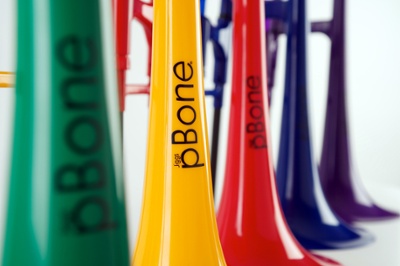Search for topics or resources
Enter your search below and hit enter or click the search icon.
August 14th, 2019
2 min read

Plastics and their impact on the environment are a hot topic right now and rightly so - especially with regard to single-use plastics, the pollution of the ocean, how to recycle and alternatives to plastic.
As a business we at Warwick Music Group are very conscious of the part we can play and how the decisions we make in making music accessible and fun may impact our environment for future generations…
The resources used in the production of plastic instruments are significantly less than in traditional brass. Brass instruments are mainly manufactured from yellow brass (70% copper and 30% zinc). Approximately 70% of the zinc produced is sourced from mined ores and only 30% from recycled/secondary zinc. Zinc reserves are currently expected to last only for the next 17 years. Copper’s recycling rate is higher; 72% comes from recycled copper scrap, however, both are finite resources and come with a significant cost of extraction/recycling.
Comparing the environmental impact of plastics for manufacture and use - the whole Life Cycle Analysis or LCA - is difficult according to Dr Stephen Kukureka, Senior Lecturer at the University of Birmingham’s School Metallurgy and Materials.
“Practically ALL plastics in use are not single-use but designed 'for a lifetime' - apart from straws, cups and packaging, which are what give the plastics industry a bad name. It's quite right that we shouldn't be using such throwaway items. But items such as electrical switches and sockets, artificial arteries in heart surgery, some hip implants, ATM machines, modern canoes and even sports racquets are ALL plastics designed not just for a single-use.”
The main component in our instruments is ABS (acrylonitrile butadiene styrene), a thermoplastic that is easily and frequently recycled. In fact, a common way of producing ABS plastic is from other ABS plastic. It has strong resistance to corrosion and physical impact, is relatively cheap, inert and easy to colour (brightly) with a smooth finish. It is widely used for many household items such as vacuum cleaners, food mixers, computer keyboards and perhaps most famously, Lego bricks.
So, before they leave the factory the manufacturing process of our plastic instruments actually uses less energy than the production of traditional brass instruments, which is a good start.
Yes, our instruments are plastic, but they are made from recyclable ABS plastic and because they are made from this material they are incredibly robust, and can also easily be repaired, so they last a long time.
There is some discussion on the lifespan of conventional brass instruments, and it varies, however Ciaran O’Donnell, who held the position of Head of Birmingham’s Music Service, comments “plastic will go further than metal. It doesn’t wear in the same way”.

Whilst there is currently no definitive research – plastic instruments have simply not been in existence sufficiently long enough – their materials do make them much more durable. (Many schools, for instance, will talk of ‘instrument graveyards’ where brass instruments especially languish having been dropped or dented.)
Our first instrument, the pBone, was only launched in 2010 so these and subsequent instruments are still very much in use. We predict our instruments will last at least the lifetime of a young player and possibly even longer – we hope they will be passed on from generation to generation! However, should they no longer be needed almost all the parts of our instruments are recyclable.
Going forward, we are going to explain exactly how to recycle our instruments and are also exploring making instruments out of recycled plastics – watch this space!
Experienced in marketing and PR, Sophie loves connecting with people through strategic communications and is responsible for Governance360’s marketing strategy, brand and content. An advocate of lifelong learning, in late 2020 Sophie completed the Marketing Week Mini MBA with Mark Ritson.
Graduating from Durham University with a BA in Theology, Sophie worked in events and communications, before moving into the events industry. With a sideways move into marketing for a busy agency, she has since gained over 14 years’ experience through a variety of industries and roles. Most recently she spent two years at Queen’s Award for Innovation winner Warwick Music as Marketing Manager before starting her marketing consultancy, Happy Marketer Ltd in 2021 alongside her work at Governance360.
Topics: